-
Posts
4,692 -
Joined
-
Last visited
Content Type
Events
Forums
Downloads
Quizzes
Gallery
Blogs
Posts posted by ASEAN NOW Content Team
-
-
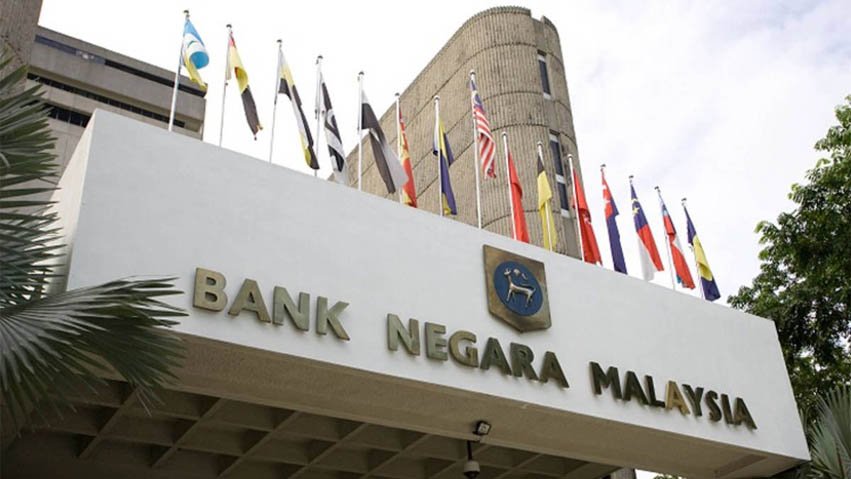
According to a Reuters poll, Malaysia's central bank will not raise interest rates from a record low until at least July, while it waits for the economy to improve.
Inflation rose over the Bank Negara Malaysia's (BNM) forecast range of 2% to 3% in November, but it was projected to fall back within that range in the following months, giving the central bank leeway to hold off on rate hikes for the time being.The BNM is expected to retain its overnight policy rate at 1.75 percent until the end of June, according to a survey of 23 economists conducted from January 10-14.
On Thursday, none of the 23 anticipate anything to change.
"We expect the recovery to become self-sustaining by mid-2022," said Debalika Sarkar, an economist at ANZ.
"We don't expect the first rate hike until Q3 2022, and it will be more indicative of policy normalisation than tightening," says one analyst.This was in line with the poll's median forecasts.
Economists predict that in the third quarter, the central bank would boost its main interest rate to 2%.
In November, headline inflation increased to 3.3% https://www.reuters.com/article/malaysia-economy-inflation-idUSL8N2T9086.
It was predicted to stabilise this year and next due to global supply chain disruptions and rising fuel prices.
It was expected to fall from 2.5 percent in 2021 to 2.1 percent this year and 2.0 percent next year.The COVID-19 pandemic, on the other hand, may have a greater impact on supply chains.
Indeed, six out of seven respondents who responded to a follow-up question stated their inflation outlook was skewed to the upside.
"Supply disruptions appear to be reducing," said Vincent Loo, senior economist at KAF Investment Bank. "However, if the epidemic prompts more lockdowns in big economies, supply disruptions could worsen."The gradual tightening comes as the Federal Reserve of the United States has taken a very hawkish stance on monetary policy, with a raise forecast as early as March.
"In the past, BNM, like many other Asian central banks, followed the Fed's lead.
However, given the virus's enormous economic impact, BNM would be entirely focused on local issues "Alex Holmes, Capital Economics' emerging Asia analyst, agreed."I don't believe the Fed's hike will compel them to hike as well."
A growing threat from the coronavirus Omicron strain, as well as a substantial economic slowdown
There are concerns for Malaysia, the world's second-biggest exporter of palm oil, in China, its main trade partner. https://www.reuters.com/markets/asia/china-growth-seen-slowing-52-2022-modest-policy-easing-expected-2022-01-13
In response to another question, six out of seven people stated the risks to their economic growth outlook were skewed more to the downside.
According to poll medians, the economy will increase 5.8% this year and 5.0 percent in 2023, after likely growing 3.5 percent last year. -
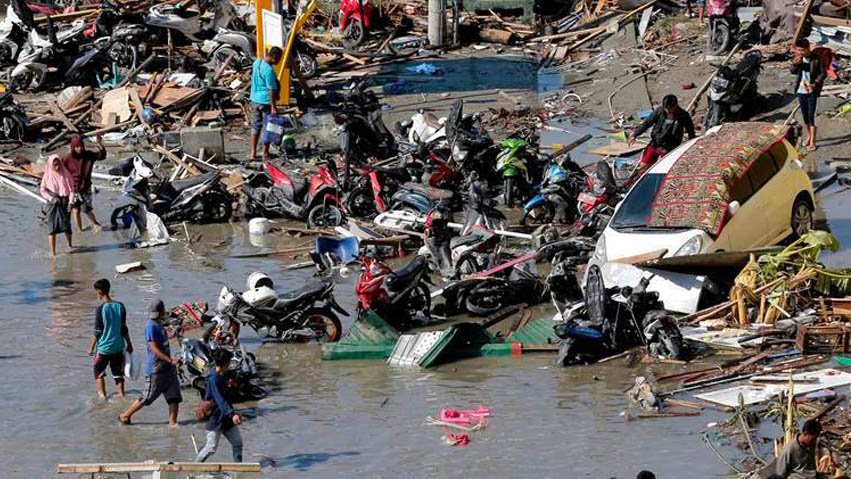
On Friday, a massive earthquake jolted areas of Indonesia's major island of Java, destroying buildings and driving people onto the streets, although no one was injured.
There was no threat of a tsunami, according to officials.
The 6.6-magnitude quake struck in the Indian Ocean about 88 kilometres (54 miles) southwest of Labuan, a coastal town in Banten province, according to the USGS.
It was located at a depth of 37 kilometres (23 miles), according to the report.
The head of Indonesia's Meteorology, Climatology, and Geophysical Agency, Dwikorita Karnawati, said there was no immediate threat of a tsunami, but warned of possible aftershocks.High-rise buildings in Jakarta, the capital, trembled for more than 10 seconds, prompting evacuations and a rush of people into the streets.
In the satellite cities of Tangerang, Bogor, and Bekasi, even two-story residences shook violently.Earthquakes occur frequently throughout the vast archipelago nation, yet they are rarely felt in Jakarta.
"Everything in my room was swinging," said Laila Anjasari, a Jakarta resident who lives on the 19th level of an apartment building.
"In a hurry, we raced out and down the stairs."
According to National Disaster Mitigation Agency spokesperson Abdul Muhari, at least 257 residences and buildings were damaged, the majority of which were in Pandeglang, the closest district to the epicentre.
There was additional minor damage recorded elsewhere, but no injuries were reported.
Due to its placement on significant geological faults known as the Pacific "Ring of Fire," Indonesia is vulnerable to earthquakes.A magnitude 6.2 earthquake struck West Sulawesi province in January of last year, killing at least 105 people and injuring almost 6,500.
In 2004, a massive earthquake in the Indian Ocean triggered a tsunami that killed over 230,000 people in a dozen nations, the majority of whom were in Indonesia's Aceh province. -
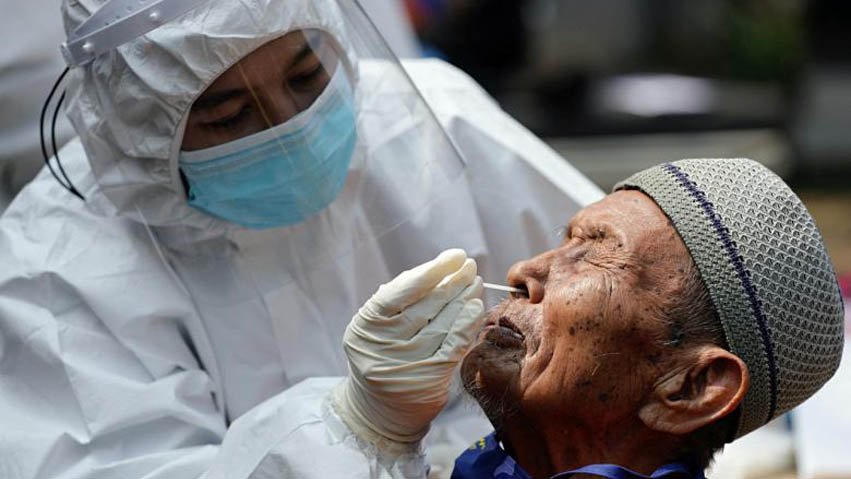
On Saturday (Jan 15), Indonesia reported 1,054 new COVID-19 cases, the greatest daily increase in three months, as the government prepares for a new wave of coronavirus infections brought on by the Omicron variant's spread.
The emergence of the Delta strain triggered a disastrous second wave of illnesses in July in the world's fourth most populous country.By December, daily case numbers had plummeted to roughly 200, before rebounding this month on reports of local Omicron variant transmission.
In a statement released on Saturday, Health Minister Budi Gunadi Sadikin said, "Local transmission has been discovered, and Jakarta has become an infection cluster."
"We need to work with the regional government to control mobility and establish health protocols, as well as administer booster vaccine doses and improve health facilities."
He didn't go into detail about any limits that local governments might apply.
Every Monday, officials examine pandemic-related measures.On December 16, Indonesia reported its first COVID-19 case of the more contagious Omicron form.
Since then, the number of confirmed cases has surpassed 500, and officials have predicted that infection rates will peak in February.
This week, the Southeast Asian nation began a vaccine booster campaign for the broader public.Discover Cigna’s range of health insurance solutions created for expats and local nationals living in Thailand - click to view
-
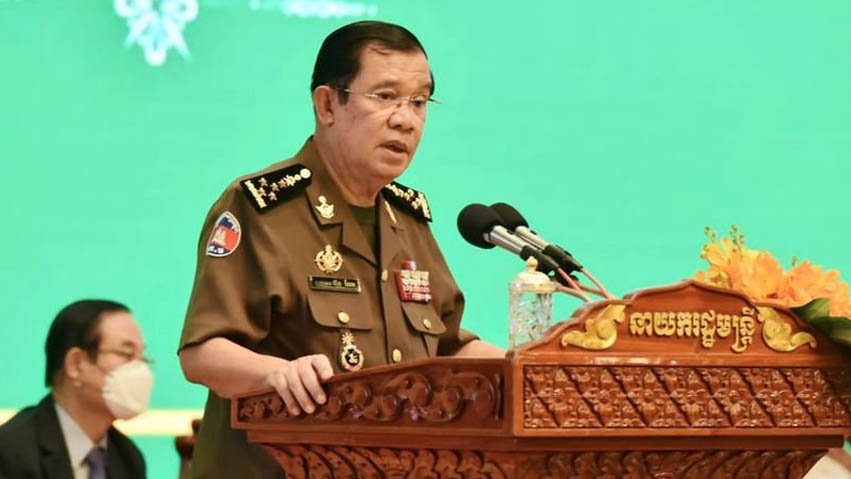
Cambodian Prime Minister Hun Sen will visit Myanmar later this week, which has been wracked by turmoil since a military coup last year.
But, as he prepares for a visit to Myanmar on Jan. 7 in an attempt to reintegrate Myanmar into the Association of Southeast Asian Nations, he holds out hope for a peaceful resolution to the country's protracted issue (ASEAN).
Last year, the bloc isolated Myanmar due to junta leader Min Aung Hlaing's failure to follow through on a vow to enact a peace plan."Only those who represent political parties are allowed to meet and hold discussions," junta spokesman Zaw Min Tun told RFA. "Those who are still facing legal charges face restrictions." Daw Aung San Suu Kyi has been arrested since the coup's first day in February, and she is facing junta lawsuits that many believe are politically motivated.
Hun Sen said in Phnom Penh on Wednesday that he had not set any preconditions for his journey to Myanmar, but that his goals were not far from the five-point consensus or the peace plan.
He urged all onlookers not to jump to conclusions about the outcome of his visit to Myanmar too soon.
According to the Cambodian national news agency, AKP, if the results are positive, it may bring peace to Myanmar, and the people of Myanmar will recognise the ASEAN member states' efforts.
While the prime minister's return was scheduled for the afternoon of January 8, he said it might be postponed if there is a positive resolution in Myanmar's issue.Myanmar citizens, on the other hand, are concerned that Hun Sen's visit will lend legitimacy to the regime, as he will be the first foreign leader to meet the ruling generals, who have been widely condemned for their brutality against their own people, including the deaths of over 1,300 people for defying their rule.
It's not surprising that Hun Sen's visit has sparked fury on social media, given the regime's continued arrests and killings, as well as the burning down of villages where armed resistance has taken place.
Many people also criticise Hun Sen's relationship with the regime, claiming that he should be interacting with all significant players in Myanmar, including the National Unity Government, a shadow civilian government.Hun Sen's planned visit was opposed by 200 civil society organisations from Myanmar and beyond in a joint statement released on Tuesday.
Last April, junta leader Min Aung Hlaing and leaders of ASEAN member states reached a five-point agreement aimed at re-establishing Myanmar's democratic path.
The agreement called for the cessation of violence, the appointment of a special ASEAN envoy to Myanmar with access to all sides of the conflict, and the provision of humanitarian aid.
However, the regime's head disobeyed the agreement, causing ASEAN to expel him from its summit in October of last year.The Five-Point Consensus has the support of ASEAN and the United Nations General Assembly, which "must ensure that Hun Sen does not act alone in 2022—lending legitimacy to the Myanmar military regime and further emboldening them to wreak greater harm to the people," according to civil society organisations.
Last week, Cambodian Foreign Minister Prak Sokhonn informed UN Special Envoy for Myanmar Dr. Noeleen Heyzer that Phnom Penh was dedicated to pursuing "a practical step-by-step approach toward achieving progress on the ASEAN Five-Point Consensus implementation."
According Cambodia The Phnom Penh Post, Hun Sen initially blamed Myanmar for its exclusion from the ASEAN summit.
But soon after receiving the ceremonial gavel for ASEAN's revolving chairmanship, he altered his tune. -
Cambodian Prime Minister Hun Sen will visit Myanmar later this week, which has been wracked by turmoil since a military coup last year.
But, as he prepares for a visit to Myanmar on Jan. 7 in an attempt to reintegrate Myanmar into the Association of Southeast Asian Nations, he holds out hope for a peaceful resolution to the country's protracted issue (ASEAN).
Last year, the bloc isolated Myanmar due to junta leader Min Aung Hlaing's failure to follow through on a vow to enact a peace plan. -

As of Wednesday, 22,872,297 people, or 97.7% of the adult population in the country, have completed the Covid-19 immunisation (Jan 5).
According to the CovidNow portal of the Ministry of Health, a total of 23,160,259 people, or 98.9% of the population, have gotten at least one dosage of the vaccine.
A total of 2,761,997 persons, or 87.8% of the adolescent population, have finished the immunisation, while 2,852,677 individuals, or 90.7 percent of the group, have gotten at least one dose of the vaccine.Yesterday, a total of 245,326 vaccination doses were provided, with 2,747 being the initial dose, 3,859 being the second dose, and 238,720 being booster doses.
As of yesterday, a total of 58,554,303 doses had been dispensed under the National Covid-19 Immunisation Programme, including 7,107,613 booster doses.
Meanwhile, a total of 18 deaths were reported yesterday, according to the ministry's GitHub portal, with three cases each reported in Pahang, Perak, and Selangor.
Kelantan, Sabah, and Terengganu each had one death, while Kedah, Melaka, and the Federal Territory of Kuala Lumpur each had two deaths.-
 1
1
-
-
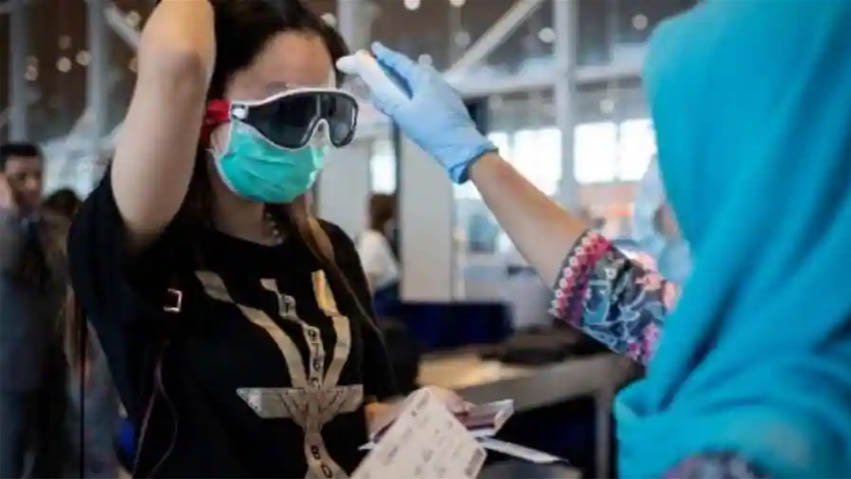
Malaysia has seen an increase in new Covid-19 infections, with 3,270 cases reported in the last 24 hours compared to 2,842 instances the day before.
Tan Sri Dr Noor Hisham Abdullah, the country's health director-general, said in a Twitter post that the country's total Covid-19 cases had now reached 2,773,156 since the pandemic began two years ago.
"Of the 3,270 cases reported today, 3,018 affected 2,916 Malaysians and 102 foreigners.""The remaining 252 instances, comprising 222 Malaysians and 30 foreigners, were imported," he added in a statement.
According to Dr. Noor Hisham, 257 patients were admitted to the Intensive Care Unit (ICU), with 197 cases of Covid-19 confirmed and the remaining 60 cases suspected, potential, or currently under investigation.
"There were 137 patients who needed respiratory care, with 89 confirmed Covid-19 instances and the rest suspected, probable, or under investigation for Covid-19," he continued.
According to him, 69 of the 3,270 instances recorded today are in categories 3, 4, and 5, while 3,201 are in categories 1 and 2.Malaysia's Covid-19 infectivity rate is currently at 0.99, according to Dr. Noor Hisham.
"Among the states, Sabah and Kelantan topped the list with R0 values of 1.01 and 1.00, respectively, while Sarawak had the lowest with 0.78," he said.
In the previous 24 hours, four additional Covid-19 clusters have been recorded, bringing the total number of active clusters to 195.
Dr. Noor Hisham said there are 147 temporary relief centres (PPS) functioning in six states (Pahang, Selangor, Negri Sembilan, Melaka, Johor, and Sabah) to help with flood mitigation.
"In any of the PPS, no new Covid-19 cases or clusters have been reported," he stated.The ministry also discovered 32 cases of acute respiratory infections, 20 cases of skin illness, and six cases of acute gastroenteritis.
Discover Cigna’s range of health insurance solutions created for expats and local nationals living in Thailand - click to view
-
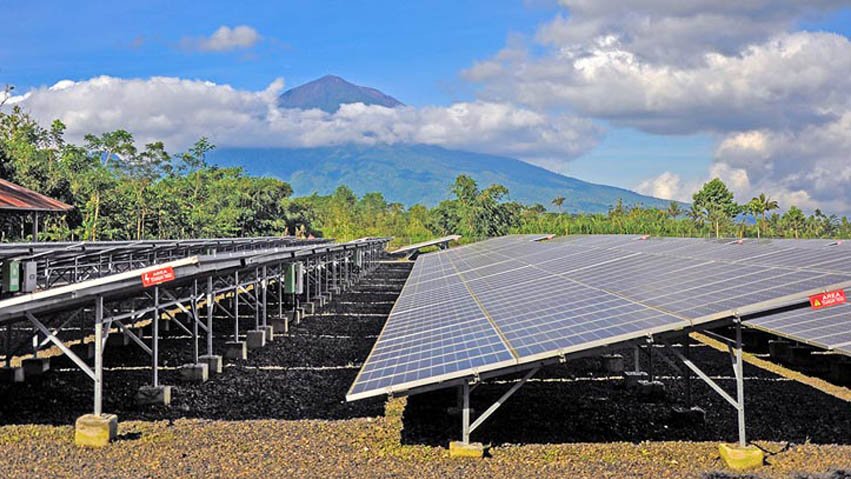
Aji Tri Atmojo lives on the outskirts of Jakarta, Indonesia, in a typical Javanese house with wooden walls, but his rustic abode received a modern twist after he erected a row of solar panels on his roof.
He has cut his monthly electricity expenditure in half since installing them in 2020 at a cost of 10 million rupiah (US$702.25), and the investment should pay for itself in five years.Indonesia's energy mix is still heavily reliant on coal, despite a mixed track record with renewables. However, if early signals of a surge in solar adoption are sustained, it might have a revolutionary impact on Southeast Asia's largest economy.
"Because coal is used to generate virtually all of Indonesia's electricity.
My family will be able to minimise greenhouse gas emissions in this manner "Reuters spoke with Aji.
Indonesia wants to phase out coal and become carbon neutral by 2060, if not sooner.
Despite being a tropical archipelago of 17,000 islands with year-round sunshine, Indonesia ranks last among the G20 countries in terms of solar generating capacity.However, governmental changes, a rapid drop in the price of Chinese-made photovoltaic cells (PV), and environmentally conscious middle-class consumers like Aji, an engineer at a dairy company, are driving demand in the world's fourth-most populated country.
According to state-owned power company Perusahaan Listrik Negara, the number of private rooftop solar panel customers has increased more than sevenfold to roughly 4,500, with an installed capacity of 44 MW, up from 1.5 MW at the end of 2018. (PLN). -

The Indonesian government's surprise decision to halt some thermal coal shipments in order to ensure domestic supplies could have ramifications for Australian miners locked out of the Chinese market.
Indonesia is the world's largest exporter of thermal coal, accounting for up to 40% of global thermal coal freight and exporting 400 million tonnes in 2020.
However, mine operators are required by law to prioritise the state-owned domestic power generation at below-market pricing of roughly $US70 per tonne, significantly below the $174 per tonne Newcastle coal futures for January.Indonesia has halted coal exports for the month of January, affecting up to 30 million tonnes of coal, citing low supply levels at power plants that could result in blackouts.
The flow-on impacts are most likely to be felt in China, India, Japan, and South Korea, the archipelago nation's primary commercial partners.While the decision surprised the market, MineLife senior research analyst Gavin Wendt said it should not come as a surprise because it echoed Jakarta's economic nationalist objective.
"They have been a government that's been very proactive at implementing legislation to protect Indonesian interests," he said.
"We've seen this before, in recent years, with the government regulating and effectively prohibiting raw material exports."
"They don't want to just be an upstream supplier of raw commodities for export; they want to add value." -

Brunei Darussalam is one of 14 nations on Laos' Travel Green Zone Plan that have been granted entry under the country's re-opening policy.
Brunei, Indonesia, the Philippines, Norway, Switzerland, Finland, Israel, Ireland, Hungary, Austria, New Zealand, Poland, Denmark, and Belgium have been granted permission to enter Laos under the new travel programme by the Consular Affairs Department of the Ministry of Foreign Affairs of Laos.
The 14 countries have been added to the original list of 17 that was released two weeks ago.
China, Vietnam, Cambodia, Thailand, Malaysia, Singapore, South Korea, Japan, France, the United Kingdom, Germany, the Netherlands, Spain, Italy, the United States, Canada, and Australia are among the countries on the inaugural list.Tourists will be allowed to travel in two zones: Green Travel Zones and Green Travel Trails, which will be implemented in three stages.
Tourists can visit Vientiane Capital, Luang Prabang Province, and Vang Vieng District in Vientiane Province during Phase One, which runs from January 1 to March 30.
Meanwhile, Green Travel Trails will be approved in five provinces: Oudomxay, Xayaboury, Xieng Khouang, Khammouane, and Champasack.Vientiane Capital, Vientiane Province, Luang Prabang, Oudomxay, Xayaboury, Xieng Khouang, Khammouane, Savannakhet, and Champasack will be included in the Green Travel Zones during Phase Two.
During Phase Two, four provinces will be approved for Green Travel Trails: Bokeo Province's Houay Xay District, Luang Namtha Province, Sekong Province, and Salavanh Province.Discover Cigna’s range of health insurance solutions created for expats and local nationals living in Thailand - click to view
-
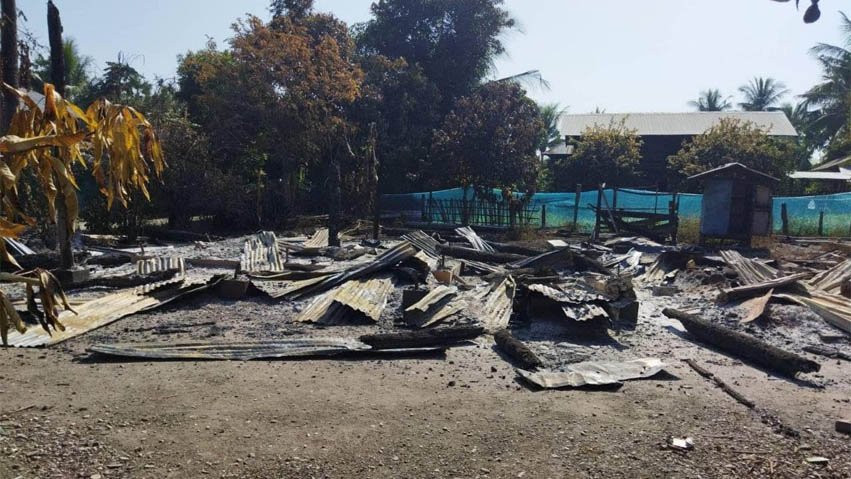
Following military airstrikes and ongoing skirmishes in the area, at least 20 civilians were killed and 38 homes were set ablaze in Natchaung hamlet in Sagaing Region's Kalay Township, according to an evicted legislator and a local resistance fighter.
While checking on the residences that had been demolished following the junta's control of the community, local defence troops discovered the dead people in Natchaung.
According to elected regional MP Thant Wai Kyaw, who was unable to take office after Myanmar's February 1 coup, Myanmar army personnel had been stationed in the area since the third week of December, with violent skirmishes with the resistance beginning on December 22.Htoo Aung, 72; Min Din, 62; Win Myint Yi, 60; Aye Ko, 60; Maung Kyi, 58; Htay Maung, 57; and eight more people between the ages of 20 and 40 whose identities were not revealed, according to a document made by resistance force members who visited Natchaung on December 31.
The bodies that are still missing have yet to be identified.
"We only discovered the bodies after returning to the village to verify."
Some of the dead had been discovered on the streets.
We didn't have enough time to return all of the dead, so we incinerated them on the streets," Thant Wai Kyaw explained.
No more information about the victims has been released.Multiple structures in Natchaung were reduced to ashes, according to photographs and videos seen by Myanmar Now.
According to the MP, the extent of the damage to the nearby villages of Hakhalay, Chaungkwa, Yaeso, and Pan Mon Chaung is unknown.
On December 22, a local alliance led by the Kalay Pa Ka Pha*, the Kalay People's Defence Force (PDF), and the Chinland National Defence Force (CNDF) attacked the military column occupying Natchaung, resulting in a seven-day battle.
The total number of casualties on both sides is yet unknown.
Myanmar Now has made several attempts to contact the junta's spokesperson about the skirmishes in Kalay Township, but has received no response. -
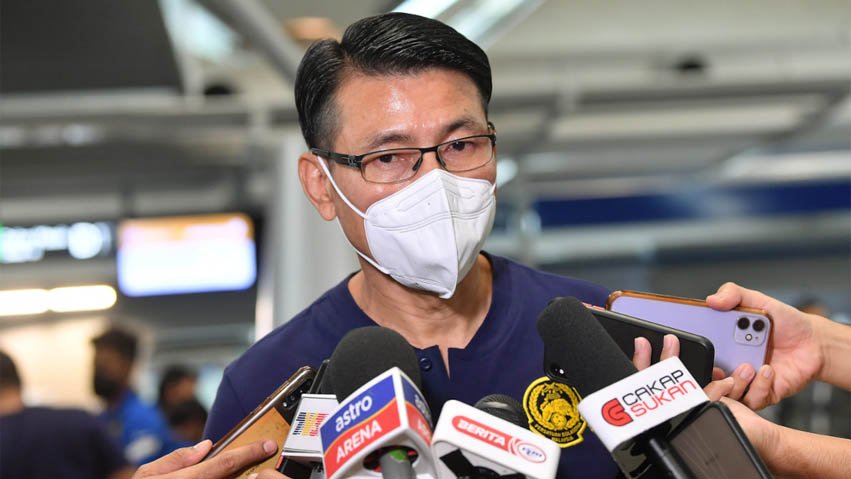
The Football Association of Malaysia (FAM) announced on Monday that Tan Cheng Hoe has resigned as Malaysia's head coach following his team's inability to qualify for the AFF Suzuki Cup 2020 semi-finals in Singapore last month (Jan 3).
Tan announced his decision to leave down during a recent meeting with the management of the national football governing body, according to FAM secretary-general Mohd Saifuddin Abu Bakar.He claimed that after a "open-hearted dialogue from all perspectives," the FAM management acknowledged his decision and mutually parted ways with Tan.
"FAM expresses its heartfelt gratitude to Cheng Hoe, who has worked for FAM for 14 years, starting as an assistant coach for the national under-20 team in 2005 "In a statement, Saifuddin said.
"His achievements and efforts will be remembered for a long time.
Thank you very much.
Also, best of luck to Cheng Hoe in his future teaching endeavours."Before his successful cooperation as assistant coach with K Rajagobal, the 53-year-old coach from Alor Setar, Kedah, had worked as the assistant coach of the under-20, under-23, and Harimau Muda A squads, helping Malaysia win the 2009 SEA Games gold medal and the 2010 Suzuki Cup.
Tan, who later became the head coach of Kedah from 2014 to 2017, established himself as one of Malaysia's greatest managers by helping the Red Eagles win the second-tier Premier League in 2015, the Malaysia Cup in 2016, and the FA Cup and Charity Shield in 2017.In 2017, he returned to FAM as Nelo Vingada's national assistant coach before being promoted to head coach at the conclusion of the year.
Before the COVID-19 pandemic delayed the tournament schedule, he built up the Harimau Malaya national team to finish runners-up in the 2018 Suzuki Cup and put the team in an excellent position in the second round of the 2022 World Cup/2023 Asian Cup qualifiers in 2019. -
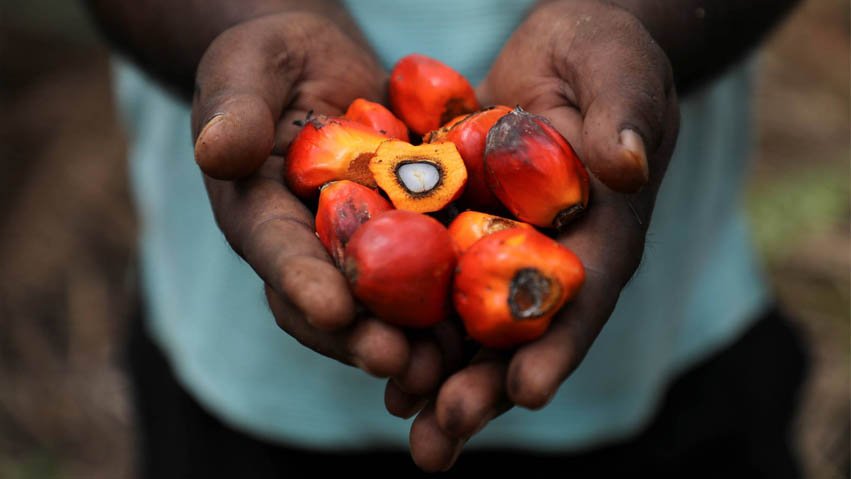
On Jan. 3, crude palm oil futures increased as much as 4% on the Malaysian commodities exchange, owing to fears that heavy rains in seven Malaysian states will stifle palm oil production in the world's second-largest producer.
In December, the Southern Peninsular Palm Oil Millers Association predicted an 8.5 percent drop in output from the Peninsular Malaysian region compared to the previous month.
"It appears like East Malaysia will see lesser output, and I've heard that specific estates in Pahang and Johor would be particularly hard hit," said David Ng, senior trader at IcebergX Sdn Bhd.According to figures from the Malaysian Palm Oil Board, Peninsular Malaysia accounts for more than half of the country's total palm oil production, with the balance coming from Sabah and Sarawak.
According to trade sources, manufacturing operations such as milling and transportation have been hit the most in the states of Selangor and Pahang, while harvesting work has halted in portions of Johor, as well as logistics challenges caused by state-wide road closures.
According to MPOB data, the cost of local delivery of crude palm oil in Malaysia has increased by 8% since December 15 to MR 5,232.5/mt ($1,251.50) on January 3, 2021.Flood events were announced by Malaysia's national disaster management agency last month in states such as Selangor, Melaka, Johor, Terengganu, and Pahang, which are key oil palm growing states in Peninsular Malaysia.
Due to the ongoing weather interruption, supplies are not arriving in full in physical markets, but the situation should improve this month, according to Sandeep Singh, director of Kuala Lumpur-based palm oil trading firm The Farm Trade.
When viewed in the context of history, market analysts also believe the floods will have a minimal influence on production.According to Marcello Cultrera, sales manager and derivatives dealer at Kuala Lumpur-based Phillip Futures, SPPOMA's low production warning is better than the market perspective, which anticipates Malaysia's December palm oil output to fall by 10% -13 percent from November's output of 1.64 million mt.
"The production in December of last year was 1.33 million mt.
This year, 1.5 million mt is expected, which is a significant change "Cultrera went on to say that, even in December, overall precipitation levels in Malindo, Malaysia and Indonesia, were comparable to past years. -
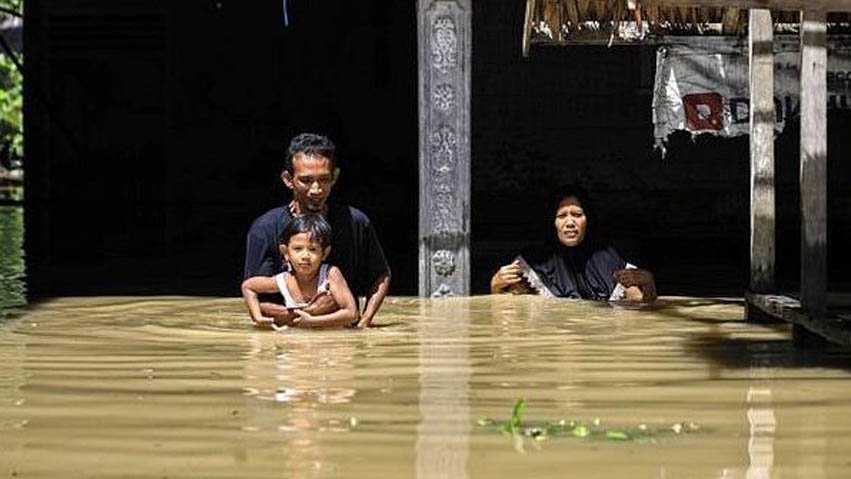
Officials announced Tuesday that floods on Indonesia's Sumatra island had displaced 24,000 people and killed two children, with environmentalists blaming deforestation for exacerbating the crisis.
The island has been battered by torrential rains for days, prompting rivers to overflow their banks and causing water levels to rise in residential areas, according to the national disaster service.
"We get flooding at least five to eight times a year," said Muzakkir, a resident of Pirak Timur in Aceh's hard-hit Aceh province who, like many Indonesians, goes by one name."The floodwaters just continued rising — at my house, they're up to my chest," Syarifuddin, of the Aceh village of Lhok Sukon, said.
The province has seen evacuations and deaths, as well as the destruction of some buildings by fast-moving floodwaters and the damage to agricultural land.
Jambi province in Sumatra was also severely impacted, with many homes being inundated.
Deforestation to make room for Sumatra's vast palm oil plantations, according to environmental NGO Walhi, exacerbated the flooding.
Trees serve as natural flood defences by slowing the flow of water down hills and into rivers.According to Ahmad Shalihin of Walhi, logging on higher ground was having an especially negative impact in Aceh.
Thousands more people have been forced to abandon their homes in recent days due to heavy downpours in neighbouring Malaysia, which has been heavily struck by flooding since last month.
On Tuesday, about 13,000 people had been evacuated to government shelters, with the states of Johor, Malacca, and Sabah being the hardest hit.
However, the number of people affected has decreased significantly from a peak of over 70,000 in mid-December, when Malaysia experienced its worst floods in years.
According to police, some 50 people have died as a result of the floods across the country.During the months-long rainy season, flooding and landslides are common in both Southeast Asian countries.
-
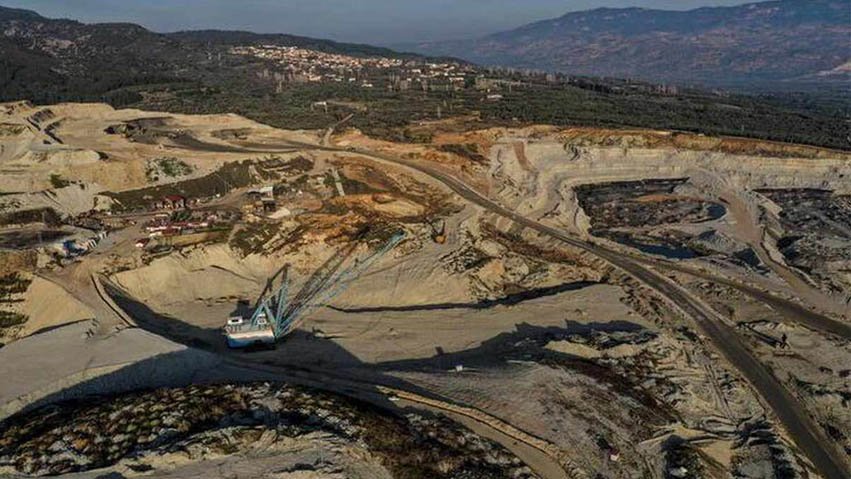
On Tuesday, Indonesia's national utility obtained an additional 7.5 million tonnes of coal supply, averting power shortages, boosting reserves, and increasing the odds that the government will soon abolish its export prohibition.
To minimise disruptions at domestic generators, Indonesia, the world's top producer of coal used in power plants and China's main overseas supply, put a moratorium on exports throughout January on Saturday.China's coal prices have risen as a result of the action, while Indonesian authorities are expected to review the restriction on Wednesday.
While the additional supply had been acquired, state utility Perusahaan Listrik Negara (PLN) stated it planned to continue raising inventories to a minimum usage level of 20 days."Coal power plants that have been in a supply crisis are beginning to see their supply issues resolved," PLN CEO Darmawan Prasodjo said in a statement.
A PLN spokeswoman was unable to say how much extra supply was required for the planned stock level.
PLN has earlier stated that it would require an additional 5.1 million tonnes of supply in January to avert extensive disruptions.As a "very short-term solution," Pandu Sjahrir, chairman of the Indonesian Coal Miners Association (ICMA), stated the group's ten largest members will assist PLN in closing the supply deficit.
According to Rory Simington, lead analyst for Asia Pacific coal research at Wood Mackenzie, such coordination could prevent a month-long suspension.
"A halt in Indonesian exports would have a significant impact on thermal coal markets," Simington said, "but a total embargo for January is unnecessary and unlikely to be executed.""We predict 40 million tonnes of Indonesian exports in January, with total domestic demand of around 12 million tonnes; any deficit would only require a fraction of total capacity," he added.
In a statement released on Tuesday, ICMA said it was in talks with the government to fix the issue and was working with members to meet domestic requirements.
"We are hopeful that the supply shortages in some power facilities will be resolved soon, and that exports will gradually reopen," it stated.Distribution was hampered, according to the group, by challenges in getting vessels to transfer coal to the public utility.
"The primary roadblock in the field to accelerating supplies distribution is the lack of barges," it stated. -
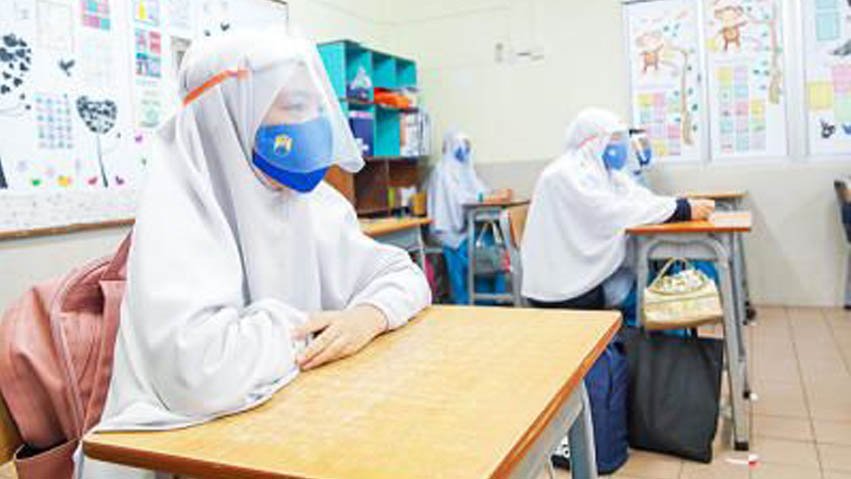
For primary and secondary schools, as well as sixth form centres, the first school term for 2022 began on Monday (Jan 3).
During a news conference, Minister of Health Dato Seri Setia Dr Mohd Isham Jaafar stated that the Ministry of Health (MoH) had received no positive findings from the antigen fast test (ART).
Years 10-13 children who finished Covid-19 vaccination returned to face-to-face sessions five days a week, according to the Ministry of Education (MoE), including those with exceptional needs in priority level one and two categories.Meanwhile, priority level three special needs pupils will attend school three times a week.
Students in Years 10 to 13 who haven't finished their vaccination schedule will continue to learn remotely or with home learning packs (HLP).
Kindergarten and Year 1–9 students continue their online or HLP home-based study.
To guarantee the safety of kids and school employees, the Ministry of Education devised a whole-school approach that included detailed guidelines and measures in addition to standard operating procedures (SOPs) and a business continuity plan (BCP).
Weekly ART screening for all students and staff is one of the measures.
Students with flu-like symptoms will be separated in dedicated rooms, and the schools will have body temperature inspections at the entrances.Discover Cigna’s range of health insurance solutions created for expats and local nationals living in Thailand - click to view
-
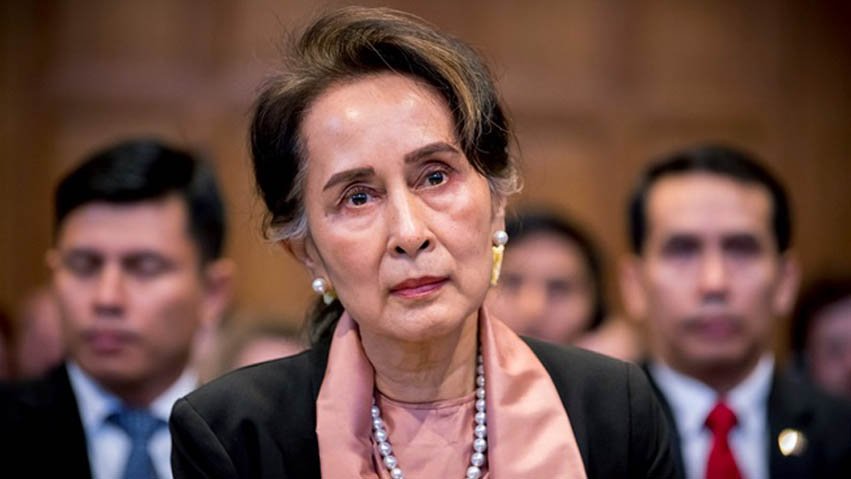
According to her lawyer, Myanmar's military administration has condemned the female former bodyguard of jailed State Counselor Daw Aung San Suu Kyi to three years in prison.
Cherry Htet, a 30-year-old Myanmar Police second lieutenant, was accused with breaking police standards for supporting the overthrown leader on social media.
On December 30, she was sentenced."The police court convicted her to three years and remanded her to Yamethin Prison the same day," her lawyer, U Myint Thwin, said.
The lawyer stated that he would be unable to attend the sentencing in Naypyitaw, Myanmar's capital.
Suu Kyi's former bodyguard had been incarcerated in Naypyitaw Prison since September 23, 2021, after being placed under surveillance following the junta's February 2021 coup and subsequently detained under house arrest in a building behind the Naypyitaw police special branch headquarters.
Because Naypyitaw's jail does not hold criminals serving sentences of three years or more, she was moved to Yamethin Prison in Mandalay Region.In addition, the officer faces a charge of inciting, which carries a maximum term of three years in prison.
Cherry Htet was accused of writing on March 14, 2021, "We miss you Amay (mother)," a common Myanmar epithet for Daw Aung San Suu Kyi.
"If you don't dare to be loud about justice, keep your mouth shut and don't declare there is justice," she allegedly said in another message on March 6.
In addition, the former bodyguard is accused of contacting with a lawmaker from the National League for Democracy and getting intelligence regarding the civilian National Unity Government.Last July, Ko Zaw Naing Win, a close assistant of Daw Aung San Suu Kyi and deputy director of the Ministry of Foreign Affairs, was sentenced to seven years in prison for breaching a civil servant's trust by joining the junta's Civil Disobedience Movement.
-
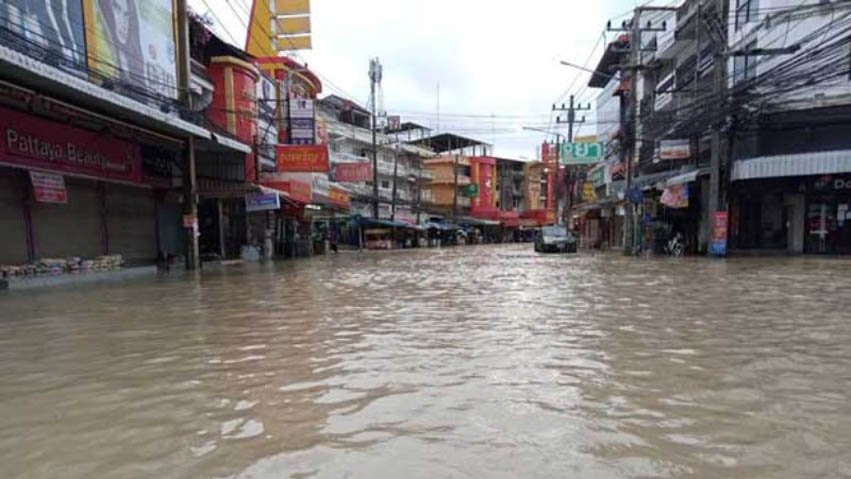
Floods slammed seven Malaysian states on Sunday, causing thousands of people to flee their homes, bringing the total number of people impacted by severe rain in the last two weeks to more than 125,000, according to the National Disaster Management Agency.
Floods are continuing affecting Kelantan, Terengganu, Pahang, Johor, Malacca, Negeri Sembilan, and Sabah, according to the agency, with 8,727 people taking refuge in 128 rescue facilities.
The floods have affected a total of 125,490 individuals across the country, with 117,700 evacuees returning home, according to the report.
Floods are normal on Malaysia's eastern coast during the yearly monsoon season, which runs from October to March, but particularly strong rains that began on December 17 evacuated thousands and put emergency services under strain.According to a police tweet citing Inspector-General Acryl Sani Abdullah Sani, fifty persons have died in the floods and two are still missing.
Following the first round of flooding two weeks ago, opposition MPs chastised the government for its slow reaction.
"The authorities never came to our aid," said one resident who was stuck in her home for two days and had to be rescued by friends.
The National Disaster Control Centre has issued a disaster operation preparedness notice in response to the meteorological department's forecast of continued heavy rains.The Department of Irrigation and Drainage also issued a high tide warning for the period of January 2 to 5, as well as a warning to people on Peninsula Malaysia's west coast, according to the statement.
Malaysia has announced that it will distribute 1.4 billion ringgit ($336.22 million) in cash and other types of assistance to families affected by severe flooding earlier this month.
It also wants $3 million from the United Nations Green Climate Fund to build a national climate change adaptation plan.
According to Secretary-General Zaini Ujang, the strategy will focus on areas such as water, agriculture, and food security, public health, forestry, and infrastructure.The monies asked are insignificant in comparison to the amount of money the country has vowed to spend on flood prevention, but experts estimate that the plan's implementation will cost far more.
-
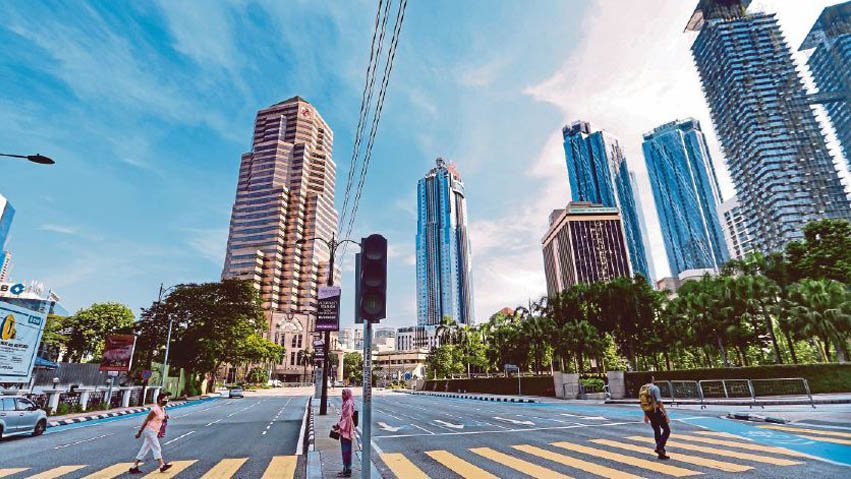
After declining 4.5 percent in the third quarter of 2021, the Malaysian economy is currently climbing out of its bottom two years after the Covid-19 outbreak began.
It is on the road to recovery in 2022, with the reopening of economic and social sectors assisting it.
In certain states, the greatest floods in decades have slowed recovery in late December 2021 and early 2022.
We expect real GDP to rise by 5.2 percent in 2022, up from 3.4 percent in 2021.The expected strong bounce-back in public investment via a high allocation of development expenditure (RM75.6bil) in 2022, aided by a gradual recovery in the labour market (jobless rate stood at 4.3 percent in October 2021 versus 5.3 percent in May 2020) and a revival of consumer spending (some pent-up demand), will underpin a firmer economic recovery.
However, we warn that growing construction costs, a lack of public implementation ability, and a labour scarcity could cause projects to be delayed, resulting in a tardy release of cash.The general attitude and feeling have improved since the economic reopening, since consumers are now able to travel interstate, which has benefited domestic tourism.
Despite concerns about the Omicron model, people mobility and traffic indicators have been improving.
Visits to retail, recreation, grocery stores, and shopping malls, as well as visits to workplaces, increased.
Due to a resurgence in interstate travel and local tourism, hotel occupancy rates have improved to roughly 40% – 50% in recent months.
Nonetheless, a rebound in international visitor visits (an average of 26.1 million per year from 2015 to 2019 with RM80.7 billion in foreign exchange profits) is seen as vital to keep tourism and allied industries growing at a faster pace.Owners are anxious to restart and continue operations in the pre-Covid state, and businesses are progressively returning to normalcy.
In October, wholesale and retail trade sales rose 5.4 percent year-on-year (y-o-y) to RM116.4 billion, the highest amount on record.
Since June 2021, automobile sales have risen 10.2 percent to RM14.2 billion, following months of double-digit falls.
Due to continued global demand and firmer commodity prices, exports have performed well in the second half of 2021, with several months exceeding expectations.
Electronics and electrical items, refined petroleum, metal manufacturing, chemicals and chemical-related products, as well as palm oil and related commodities, all expanded by 25.7 percent year over year in the first 11 months of 2021.We forecast export growth to decrease to 1.8 percent in 2022 (from 24.5 percent in 2021), as shipments moderate from a high base level of RM102 billion per month in 2021.
Due to the Omicron variety, there is still some ambiguity about worldwide growth.
Due to the time it takes for bottlenecks to clear and manufacturing capacity to ramp up, global supply chain disruptions are anticipated to continue into the first half of 2022.
The speed of manufacturing has also been slowed by a labour scarcity and rising raw material costs. -
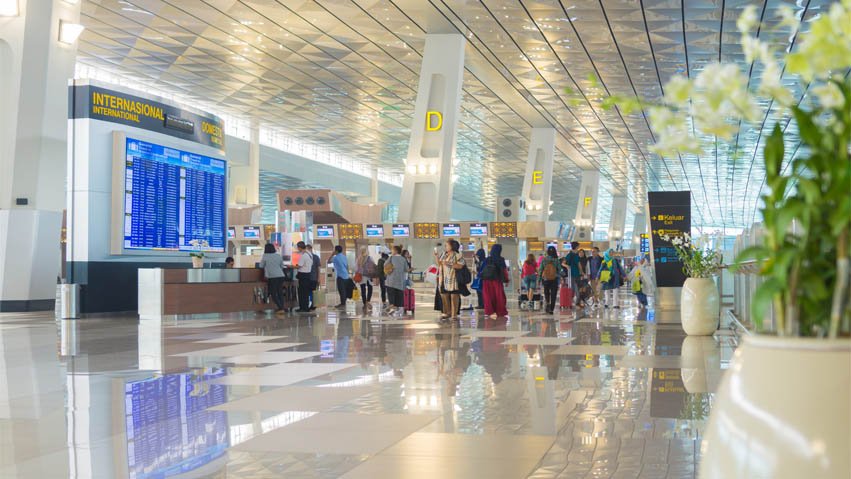
The Indonesian government has decided to reduce the 10-day required quarantine period for international arrivals to 7-10 days.
"The 14-day quarantine will be reduced to 10 days, and the 10-day quarantine will be reduced to seven days," Coordinating Minister for Maritime Affairs and Investment Luhut Binsar Pandjaitan stated at a press conference at the Jakarta Presidential Office on Monday, January 3.
The former law on the 10-day quarantine was mentioned in the COVID-19 Task Force Head's Decree No. 1 of 2022 regarding entry points, quarantine centres, and RT-PCR duties for Indonesian residents travelling abroad.Due to worries about the increase of the Omicron variety in the country, the regulation was originally planned to take effect from January 1, 2022, until December 31, 2022.
International travellers from countries with confirmed Omicron cases who are geographically close to the country reporting the variation are subjected to a 14-day obligatory quarantine.
Indonesia has confirmed 152 COVID-19 Omicron infections, according to Health Minister Budi Gunadi Sadikin.
Six of the incidents included local transmission.Discover Cigna’s range of health insurance solutions created for expats and local nationals living in Thailand - click to view
-

As the Omicron strain spreads across Indonesia, health minister Budi Gunadi Sadikin said on Monday (Jan 3) that the general public will begin receiving COVID-19 booster doses on January 12.
Booster doses were delivered to health workers in July, and the objective now is to cover all people who received their second vaccination more than six months ago.
Budi estimates that almost 21 million people will be covered under the booster programme this month."Mr President has determined that (the programme) will start on January 12," he stated.
Indonesia has immunised 42% of its 270 million people, utilising shots made by Sinovac Biotech, Pfizer/BioNTech, or Moderna in China.
Budi stated during a press conference that the country will require roughly 230 million booster doses, of which nearly half have been secured.
Since its discovery last month, the Omicron variety has infected over 150 persons in Indonesia, the bulk of whom were international travellers.
Six of the cases, according to Budi, were caused by local transmission in Jakarta, Surabaya, Medan, and the island of Bali.In July, Indonesia was hit by a devastating second wave of infections, but the number of cases has since dropped dramatically.
Discover Cigna’s range of health insurance solutions created for expats and local nationals living in Thailand - click to view
-
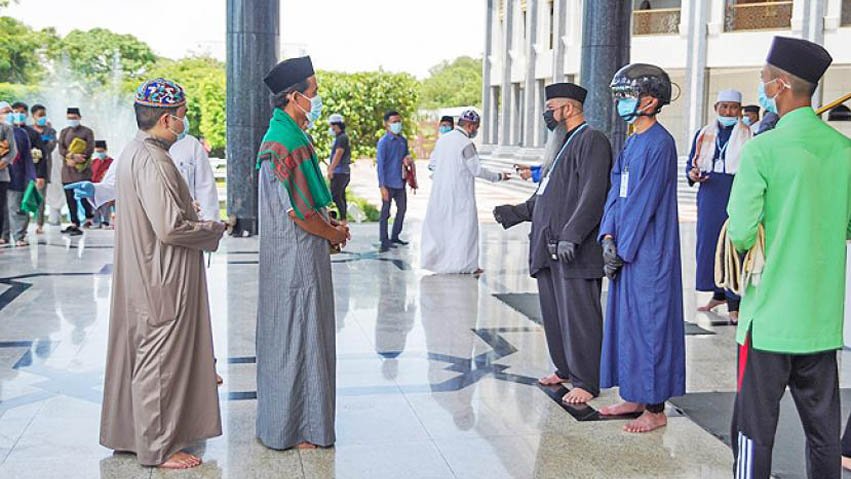
After a bleak conclusion to 2021, the people of Brunei are more determined than ever to return to stability and prosperity in 2022.
Businesses and the general public are looking forward to the new year with optimism, anticipating change and improvement.
Covid-19 had wreaked havoc on the previous year, resulting in several deaths and a declining economy.
"With the whole-of-nation strategy and towards a dynamic economic vision, we trust that by the turn of the year, we shall surpass Covid-19," Halim Saim, Deputy Secretary General of the National Chamber of Commerce and Industry of Brunei Darussalam (NCCIBD), said in an interview with the Bulletin."To guarantee that the economic synergy operates smoothly and satisfies Brunei Vision 2035, the public and private sectors should collaborate."
With competent administration and supervision, a micro, small, and medium-sized enterprise (MSMEs) centre could be developed.
"In the country, shophouses are proliferating.
To adapt to the new normal, we must reinvent leadership abilities and teams, as well as reorganise corporate strategy," he noted.
"I am looking forward to a wonderful new year ahead," K Goh of SONAX Brunei remarked.
We must put the past behind us and look forward to a brighter future."
Ayub Suhaili, founder of Eco Nadi Agrobiz, said he will concentrate on online business."In today's world, traditional brick and mortar stores are struggling.
He remarked, "I need to manufacture more agricultural products with good technology and get a grant to expand my agricultural business."
"Nowadays, it is expensive to bring in items from overseas due to the pandemic," Ayub continued.
Red chillies, for example, are prohibitively expensive due to limitations in Malaysian states such as Sabah.
"The market determines the price."
During the Endemic Phase, a textile shop owner told the Bulletin, business is slowly coming up, with parents ordering fabric for their children's school uniforms."As parents prepare for the new school year, the same is true for stationery stores," he said.
Meanwhile, Rina, an entrepreneur, expects that 2022 would be a great year for business.
"It's been a trying year, but we've made it."
Let us look forward to a brighter new year in which the country remains safe and continues to heal from Covid-19."Discover Cigna’s range of health insurance solutions created for expats and local nationals living in Thailand - click to view
-

Australia is a country in Australia. A former People's Liberation Army Navy diesel-electric assault submarine has been given to Myanmar, marking the first such transfer between the two countries.
The UMS Minye Kyaw Htin, a Type 035 or Ming-class submarine, has been commissioned, bringing the Southeast Asian nation's fleet to two boats.
Myanmar received a Russian-built Project 877 Kilo-class boat from India in March 2020.Senior General Min Aung Hlaing, the commander-in-chief of Myanmar's military and the leader of the military government that took power in February following a coup, attended the submarine's commissioning ceremony on December 24, according to a statement from the Myanmar military.
The submarine's induction was timed to coincide with the navy's 74th anniversary, and it was joined by the Inlay-class Offshore Patrol Vessel UMS Inwa, two 18-meter riverine quick attack craft, and four 20-meter riverine patrol boats.
The freshly commissioned submarine will be utilised as a temporary attack submarine and a training vessel, according to the independent English-language news outlet the Irrawaddy, which covers news from Myanmar.On Dec. 18, a Chinese-flagged Type 035 submarine, believed to be the same vessel delivered to Myanmar, was spotted travelling west in the Singapore Strait.
A video later surfaced on social media showing the submarine escorted by a Myanmar Navy Type 5 fast assault vessel sailing up what was purported to be the Yangon River.
No other information about the submarine's transfer has been released.
Bangladesh has earlier purchased two refurbished Type 035G submarines from China, as well as the newer S26T submarine from Thailand.Myanmar's main weaponry supplier is China.
Myanmar's navy has a Chinese-made C-802 anti-ship missile, and its air force has many Chinese-made planes, notably the Chengdu JF-17 Thunder fighter jet and the Shaanxi Y-8 transport plane.
The submarine transfer shows China's continued backing for Myanmar's military regime, which has cracked down on protesters but is confronting an armed insurgency fueled by opposition to the military government. -

According to Khairy Jamaluddin, there is a good chance that an Omicron wave will start in Malaysia, as it has in other countries around the world.
To slow the spread of the highly infectious Covid-19 variant, the Health Minister said that extensive booster dose coverage, wearing face masks, good ventilation, implementing TRIIS (Test, Report, Isolate, Inform, and Seek), activating the MySejahtera Trace system, and international gateway control were among the measures.
Although others say that Omicron is less severe than the Delta form, Khairy claims that Omicron is more contagious than Delta and that increased transmissions will still place a strain on the health system and facilities.
"The Omicron wave is quite likely to begin in Malaysia, as it has in other nations.""Some people compare Omicron impact statistics to Delta impact data.
That's how it appears.
"Omicron, on the other hand, is more contagious than Delta.
If the case denominator is greater, hospitalisation and ICU (intensive care unit) use will almost certainly increase.
"The Ministry of Health does not want the public health system to be crippled.
Omicron should be slowed down as a strategy "On Sunday, he announced it in a series of tweets (Jan 2).
This was in response to Health Director-General Tan Sri Dr Noor Hisham Abdullah's statement on Saturday (Jan 1) that the national infectivity rate of Covid-19 was 0.99, up from 0.98 the day before.Discover Cigna’s range of health insurance solutions created for expats and local nationals living in Thailand - click to view






Malaysia's new Covid-19 cases have been reduced to 3,010 cases
in COVID-19 Coronavirus
Posted
In the last 24 hours, the Ministry of Health (MoH) has recorded 3,010 new Covid-19 cases.
The most recent data shows a 64-case decline from the 3,074 new infections reported the day before.
It also puts the overall number of Covid-19 cases in the country to 2,808,347 since the outbreak began.
Tan Sri Dr Noor Hisham Abdullah, the director-general of the Ministry of Health, also revealed that only 29 cases, or 0.9 percent, required hospitalisation today.
"At this time, 182 patients are being treated in critical care units (ICUs), with 36 of them being suspected, probable, or under investigation for Covid-19.
"Of the 182, 83 require ventilators to assist them in breathing, including 58 who have been verified as Covid-19 positive," he stated.
The government also warned about the possibility of increased transmission under the current flood situation.
There were as many as 471 positive cases among the flood victims.
In the last 24 hours, seven new clusters have been discovered, bringing the total number of active clusters in the country to 176.
According to him, Malaysia's infection rate is currently at 0.99, with Kuala Lumpur having the highest infectivity rate at 1.08.
Discover Cigna’s range of health insurance solutions created for expats and local nationals living in Thailand - click to view